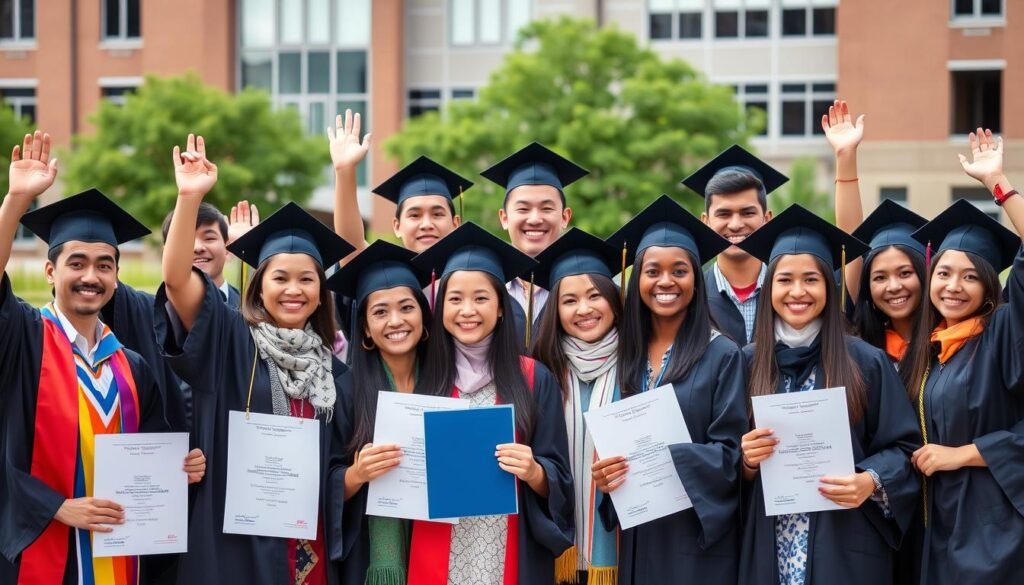
Scholarships for International Students
Financing your international education is often the most significant hurdle. Fortunately, numerous scholarship opportunities exist specifically designed for international students across various academic levels and disciplines. Understanding the types of scholarships available can significantly enhance your chances of securing funding.
Types of International Scholarships
Merit-Based Scholarships
These scholarships reward academic excellence, leadership potential, and exceptional talents. Requirements typically include outstanding GPA, standardized test scores, and demonstrated leadership experience. Notable examples include the Fulbright Foreign Student Program in the USA and the Chevening Scholarships in the UK.
Need-Based Scholarships
These awards consider your financial circumstances alongside academic achievements. They require documentation of financial need through family income statements and other supporting evidence. Examples include university-specific financial aid packages and certain foundation scholarships.

Fully-Funded Scholarship Programs
| Scholarship Name | Country | Level of Study | Coverage |
| Fulbright Foreign Student Program | USA | Graduate | Tuition, living stipend, health insurance, travel |
| Chevening Scholarships | UK | Master’s | Full tuition, living expenses, flights, extras |
| Vanier Canada Graduate Scholarships | Canada | Doctoral | $50,000 per year for three years |
| Australia Awards | Australia | Undergraduate/Graduate | Tuition, travel, establishment allowance, stipend |
| DAAD Scholarships | Germany | All levels | Monthly stipend, health insurance, travel allowance |
Specialized Scholarship Opportunities
MBA Scholarships
Competitive funding for business students, including the Stanford Reliance Dhirubhai Fellowship and Harvard Boustany MBA Scholarship, covering partial to full tuition at prestigious business schools.
STEM Scholarships
Funding for science, technology, engineering, and mathematics students through programs like the IBM Ph.D. Fellowship and Google Women Techmakers Scholars Program.
Arts & Humanities
Support for creative disciplines through the Fulbright-National Geographic Storytelling Fellowship and various country-specific cultural exchange programs.
Ready to Find Your Perfect Scholarship?
Explore our comprehensive database of international scholarships filtered by country, study level, and subject area.
Apply Now – How to Apply for Scholarships Abroad
Securing international scholarships requires strategic planning and meticulous attention to application requirements. Understanding the complete application process significantly increases your chances of success.

Essential Application Components
- Statement of Purpose (SOP): A compelling narrative highlighting your academic journey, career aspirations, and motivation for pursuing international education. Tailor each SOP to the specific scholarship and institution.
- Letters of Recommendation: Strong endorsements from professors or employers who can attest to your academic abilities, research potential, or professional competence.
- Academic Transcripts: Official records of your academic performance, often requiring translation and authentication for international applications.
- Standardized Test Scores: Results from tests like TOEFL/IELTS for English proficiency and GRE/GMAT for graduate programs.
- Research Proposal: For research-based programs, a well-structured proposal outlining your research objectives, methodology, and potential impact.
Application Timeline for 2025 Scholarships
| Time Period | Action Items |
| 12-18 months before | Research scholarships and programs, prepare for standardized tests |
| 10-12 months before | Take required tests, request recommendation letters, begin drafting SOPs |
| 8-10 months before | Finalize scholarship list, complete application forms, prepare financial documents |
| 6-8 months before | Submit applications, follow up on recommendations, prepare for interviews |
| 3-6 months before | Attend interviews, accept offers, begin visa application process |
Application Success Strategies
Do’s
- Start early and meet all deadlines
- Customize each application to the specific scholarship
- Highlight unique experiences and achievements
- Follow instructions precisely
- Proofread all documents thoroughly
Don’ts
- Submit generic applications
- Exaggerate qualifications or experiences
- Ignore eligibility requirements
- Rush the application at the last minute
- Neglect to follow up on application status
Ready to Start Your Application?
Access our step-by-step application guides, templates, and deadline trackers to streamline your scholarship application process.
Jobs for International Students
Working while studying abroad provides valuable professional experience, cultural immersion, and financial support. Understanding the employment landscape and regulations in your host country is essential for international students seeking job opportunities.

Employment Opportunities by Country
| Country | Work Hours Permitted | Popular Job Sectors | Post-Study Work Options |
| USA | 20 hours/week during semester; 40 hours/week during breaks | On-campus jobs, research assistantships, CPT/OPT internships | OPT: 12 months (STEM: 36 months) |
| UK | 20 hours/week during semester; full-time during breaks | Retail, hospitality, campus services, internships | Graduate Route: 2 years (PhD: 3 years) |
| Canada | 20 hours/week during semester; full-time during breaks | Retail, food service, tutoring, research | PGWP: up to 3 years |
| Australia | 40 hours per fortnight during semester; unlimited during breaks | Hospitality, retail, administration, tutoring | 2-4 years depending on qualification |
| Germany | 120 full days or 240 half days per year | Research assistantships, hospitality, manufacturing | 18 months to find employment |
Types of Student Employment
On-Campus Jobs
Positions within university facilities like libraries, cafeterias, administrative offices, and research labs. These jobs offer convenient locations, flexible schedules, and often align with academic schedules.
Internships
Professional experiences in your field of study, providing practical skills and industry connections. Many programs offer academic credit for internships, and some countries have specific visa provisions for internship experiences.
Part-Time Work
Opportunities in retail, hospitality, customer service, and tutoring that accommodate student schedules. These positions help develop transferable skills while providing income for living expenses.

Job Search Strategies for International Students
- University Career Services: Utilize your institution’s career center for job listings, resume reviews, and interview preparation specifically tailored for international students.
- Networking Events: Attend industry meetups, career fairs, and alumni events to build professional connections in your field of interest.
- Online Job Portals: Create profiles on platforms like LinkedIn, Indeed, and country-specific job boards that feature international student-friendly employers.
- Professional Associations: Join student chapters of industry organizations related to your field to access specialized job opportunities and mentorship.
- Campus Recruiting: Participate in on-campus interviews with companies that regularly hire international talent from your institution.
Find Your Ideal Student Job
Explore our curated job listings, employer profiles, and application guides specifically for international students.
Migration & Student Visas
Navigating immigration requirements is a critical aspect of studying abroad. Each country has specific visa categories, application procedures, and post-study pathways for international students.
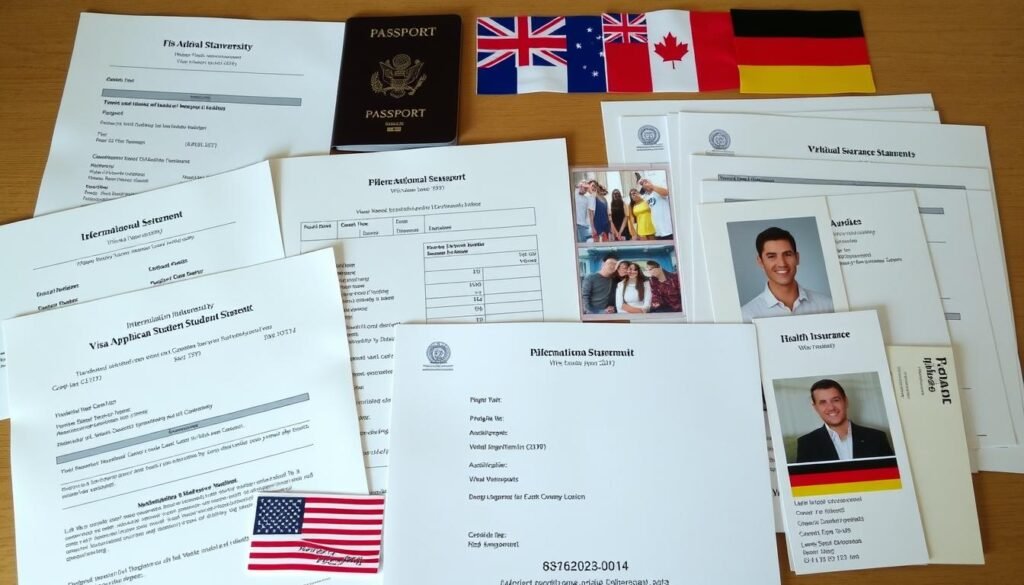
Student Visa Requirements by Country
| Country | Visa Type | Key Requirements | Processing Time | Validity |
| USA | F-1 (Academic), M-1 (Vocational) | I-20 form, financial proof, SEVIS fee, visa interview | 2-4 weeks | Duration of program + grace period |
| UK | Student Visa | CAS, financial proof, English proficiency, TB test | 3 weeks | Course duration + 4 months |
| Canada | Study Permit | Acceptance letter, financial proof, biometrics | 4-8 weeks | Course duration + 90 days |
| Australia | Student Visa (Subclass 500) | CoE, GTE statement, health insurance, financial proof | 4-6 weeks | Course duration + 2-3 months |
| Germany | Student Visa/Residence Permit | Acceptance letter, blocked account, health insurance | 6-12 weeks | 2 years (renewable) |
Post-Study Migration Pathways
Work Permits
Most popular study destinations offer temporary work permits for graduates. These include the Optional Practical Training (OPT) in the USA, the Graduate Route in the UK, the Post-Graduation Work Permit in Canada, the Temporary Graduate visa in Australia, and the 18-month job-seeker visa in Germany.
Permanent Residency Options
Many countries offer pathways to permanent residency for international graduates. These typically require securing skilled employment, meeting minimum residence periods, and demonstrating integration. Canada and Australia have particularly streamlined processes through their points-based immigration systems.
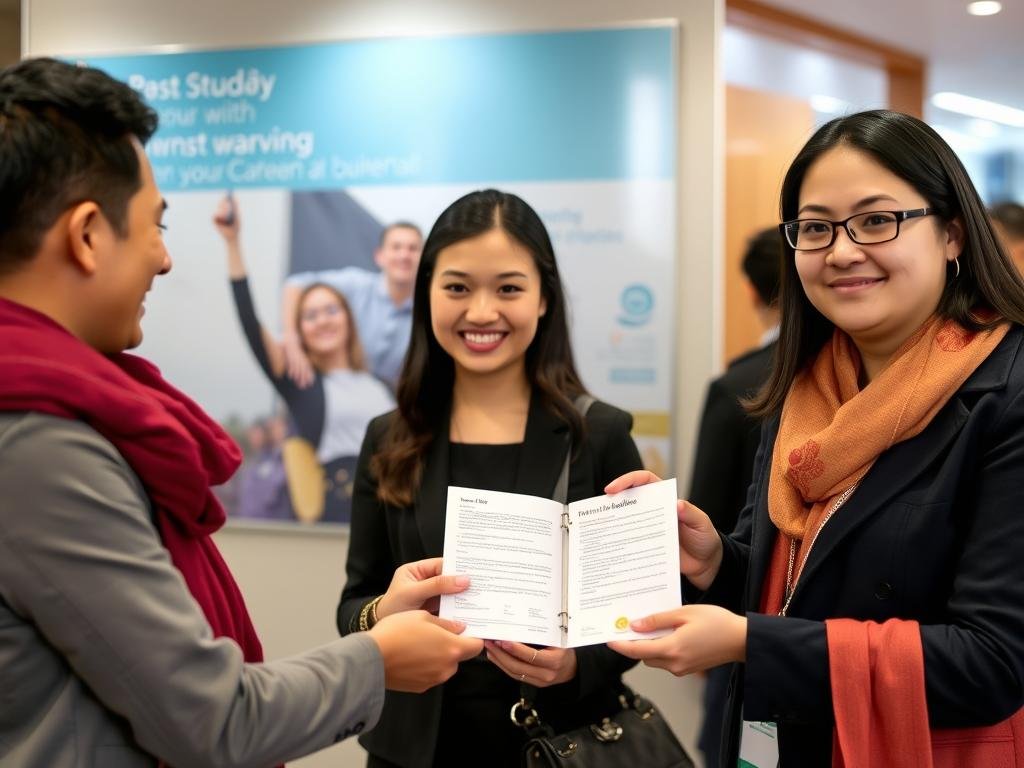
Visa Application Tips
- Apply Early: Submit your visa application at least 3-4 months before your program start date to allow for processing delays.
- Document Preparation: Ensure all documents are complete, accurate, and meet specific formatting requirements (translations, notarizations).
- Financial Documentation: Provide clear evidence of sufficient funds to cover tuition and living expenses for at least the first year.
- Interview Preparation: For countries requiring visa interviews, practice articulating your study plans, career goals, and ties to your home country.
- Maintain Legal Status: Understand and comply with reporting requirements, work restrictions, and renewal procedures throughout your stay.
Navigate Your Visa Journey
Access country-specific visa guides, application checklists, and expert advice to simplify your student visa process.
Study Abroad Guides
Adapting to life in a new country involves more than just academics. Our comprehensive guides help you navigate practical aspects of student life abroad, from housing and transportation to cultural adjustment and daily expenses.
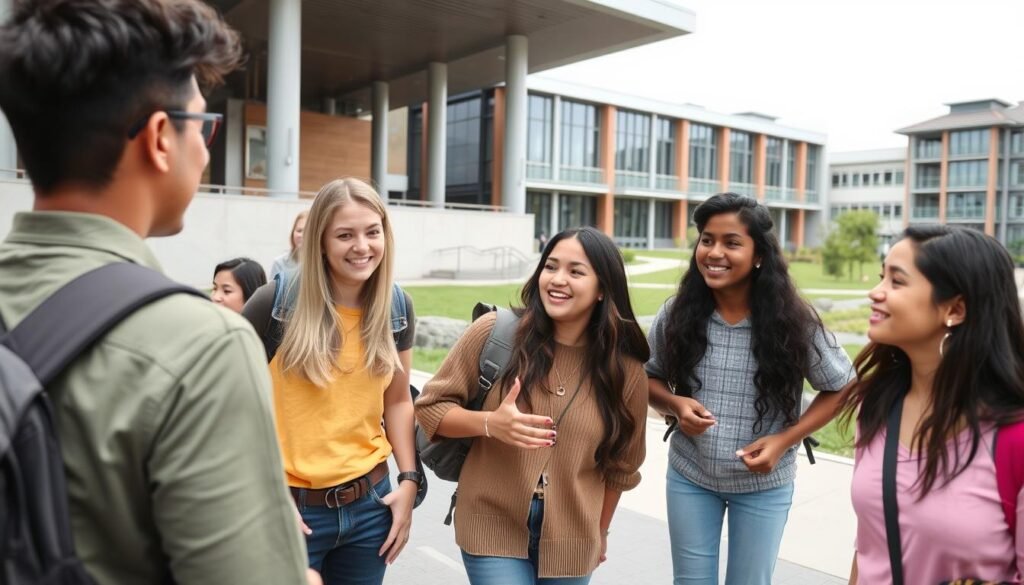
Cost of Living Comparison
| Expense Category | USA | UK | Canada | Australia | Germany |
| Monthly Rent (Shared) | $500-1,200 | £400-800 | CAD 500-900 | AUD 600-1,000 | €300-500 |
| Food (Monthly) | $250-350 | £200-300 | CAD 300-400 | AUD 300-500 | €170-250 |
| Transportation (Monthly) | $60-100 | £60-150 | CAD 80-120 | AUD 70-150 | €70-90 |
| Health Insurance (Annual) | $1,000-2,000 | £150-500 | CAD 600-900 | AUD 400-700 | €110-120 |
| Books & Supplies (Annual) | $800-1,200 | £450-750 | CAD 800-1,000 | AUD 500-1,000 | €250-500 |
Housing Options for International Students
University Accommodation
On-campus housing offers convenience, built-in community, and often includes utilities and internet. Most universities guarantee housing for first-year international students, though availability for upper years varies by institution.
Private Rentals
Off-campus apartments or shared houses provide more independence and potentially lower costs. International students should understand local rental agreements, tenant rights, and neighborhood safety before committing.
Homestays
Living with a local family offers cultural immersion and language practice. This option often includes meals and provides a supportive environment for adjusting to a new country.

Cultural Adaptation and Student Life
- Orientation Programs: Most institutions offer specialized orientation sessions for international students covering academic expectations, campus resources, and cultural adjustment strategies.
- Student Organizations: Joining clubs, sports teams, and cultural associations helps build your social network and enhances your campus experience.
- Cultural Norms: Understanding local customs, communication styles, and social expectations facilitates smoother integration into your host community.
- Health and Wellness: Familiarize yourself with campus health services, counseling resources, and recreational facilities to maintain physical and mental wellbeing.
- Academic Support: Utilize writing centers, tutoring services, and academic advisors to navigate different educational systems and expectations.
Prepare for Your Study Abroad Journey
Access comprehensive country guides, city profiles, and practical advice for international student life.
Frequently Asked Questions (FAQ)
What are the best scholarships for MBA students in the USA?
For MBA students, top US scholarships include the Fulbright Foreign Student Program, Stanford Reliance Dhirubhai Fellowship, and Rotary Peace Fellowships. Many business schools also offer merit-based scholarships like Harvard Business School’s Boustany Foundation Scholarship and the University of Pennsylvania’s Wharton School fellowships. These typically cover partial to full tuition and sometimes living expenses. Application requirements generally include exceptional academic records, strong GMAT scores, professional experience, and demonstrated leadership potential.
How do I apply for a student visa in Germany?
To apply for a German student visa, first secure admission to a German university and receive your acceptance letter. Then, open a blocked account (Sperrkonto) with approximately €11,208 (amount updated annually) to demonstrate financial capacity. Schedule an appointment at the German embassy or consulate in your home country, and submit your application with required documents: valid passport, acceptance letter, proof of financial resources, health insurance coverage, academic transcripts, and language proficiency certificates. The processing time typically ranges from 6-12 weeks, so apply well in advance of your program start date.
Can international students work while studying in the UK?
Yes, international students on a Student visa in the UK can work up to 20 hours per week during term time and full-time during official holiday periods. However, these restrictions vary based on your course level and type. PhD students and those on postgraduate research programs may have different allowances. Prohibited employment includes self-employment, working as a professional sportsperson, or entertainment professional. You cannot work as a full-time permanent employee. Always check your specific visa conditions, as regulations may change, and ensure your employer verifies your right to work in the UK.
What is the average cost of studying in Canada?
The average cost of studying in Canada for international students includes tuition fees ranging from CAD 20,000 to CAD 30,000 per year for undergraduate programs, with business and engineering programs typically costing more. Graduate programs range from CAD 18,000 to CAD 35,000 annually. Living expenses average CAD 15,000 to CAD 20,000 per year, varying by location (Toronto and Vancouver being the most expensive cities). Additional costs include health insurance (approximately CAD 600-900 per year), books and supplies (CAD 800-1,000), and transportation. In total, international students should budget between CAD 35,000 and CAD 55,000 per year.
Are there fully funded scholarships in Australia?
Yes, Australia offers several fully funded scholarship opportunities for international students. The most prestigious is the Australia Awards program, which covers tuition fees, return airfare, establishment allowance, and living expenses. The Endeavour Leadership Program provides similar comprehensive funding. Additionally, individual Australian universities offer their own fully funded scholarships, such as the University of Melbourne’s Graduate Research Scholarships and the University of Sydney’s International Scholarships. Research-intensive institutions also provide Australian Government Research Training Program (RTP) Scholarships for outstanding PhD candidates. These competitive scholarships typically require excellent academic records, research proposals, and sometimes professional experience.
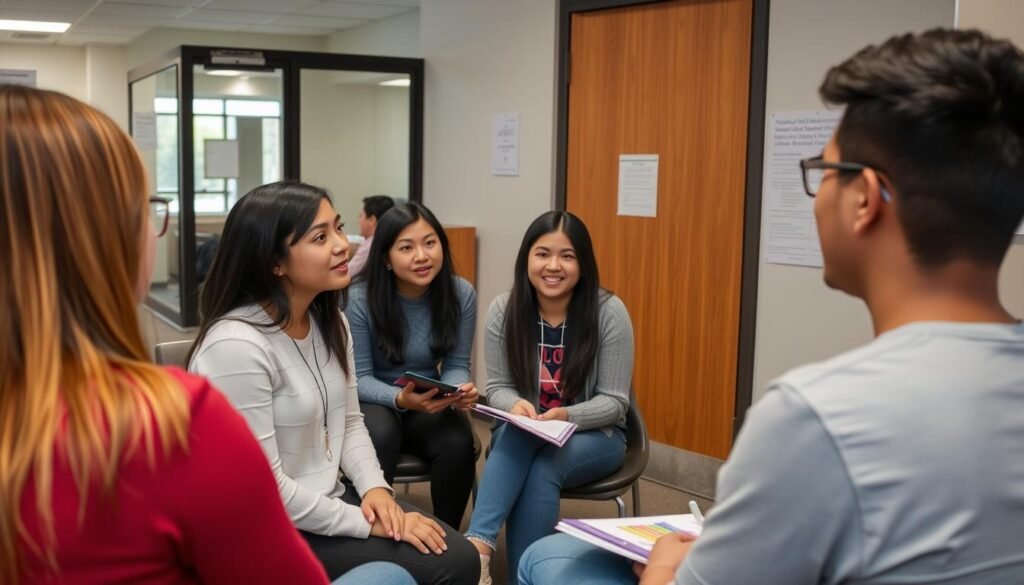
Your Gateway to Global Education
Free Studentship is committed to being your comprehensive resource hub throughout your international education journey. From identifying suitable scholarship opportunities and navigating complex application processes to understanding visa requirements and adapting to life abroad, our platform provides the guidance you need at every step.
We continuously update our resources to reflect the latest scholarship offerings, employment regulations, visa policies, and practical information for international students. Our goal is to democratize access to global education by connecting ambitious students with opportunities that align with their academic interests, career aspirations, and financial circumstances.
Begin your international education journey today by exploring our specialized resources for your destination of interest. Whether you’re dreaming of studying in the innovative campuses of the United States, the historic institutions of the United Kingdom, the welcoming communities of Canada, the dynamic universities of Australia, or the technical excellence of Germany, Free Studentship is your trusted companion in turning these aspirations into reality.
Start Your International Education Journey
Explore our comprehensive resources for scholarships, jobs, visas, and practical guides for studying abroad.
